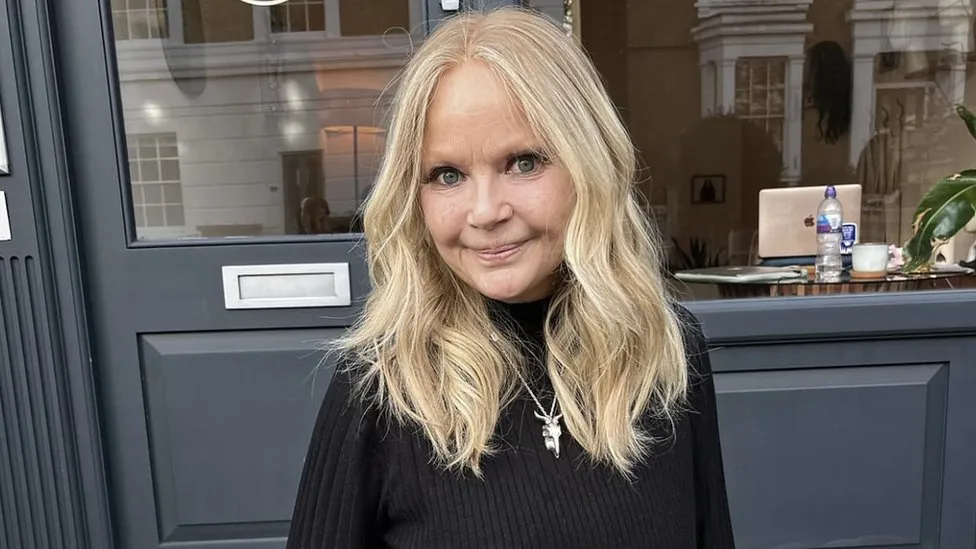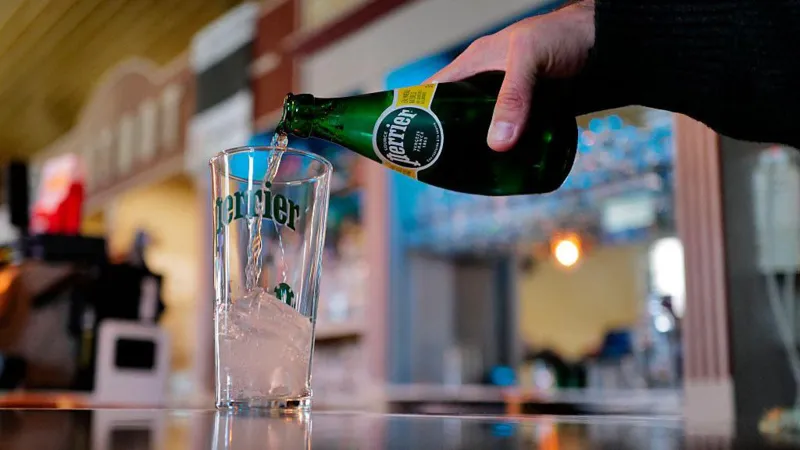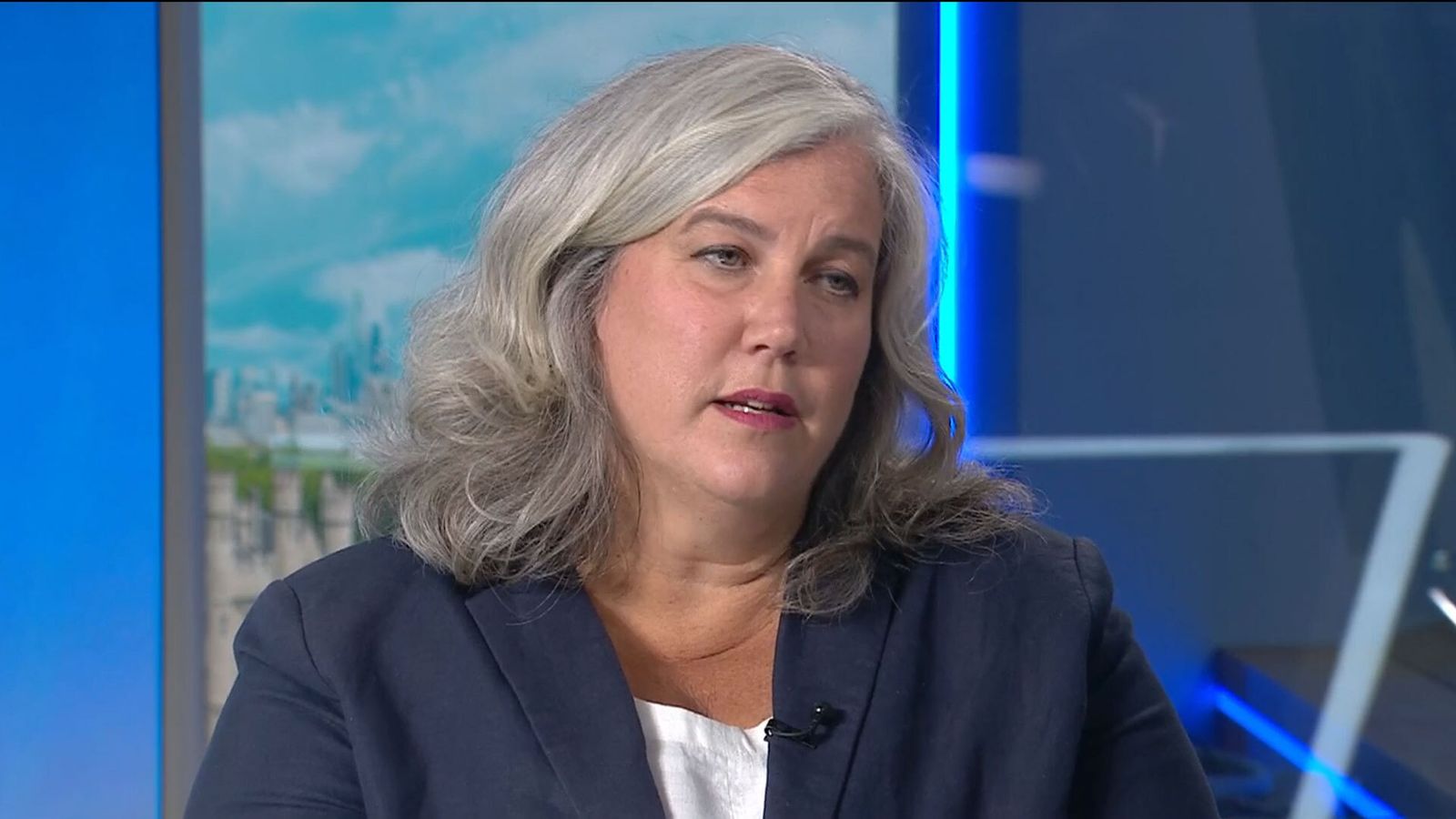'There is no right or wrong way to have alopecia'
Gail Porter has been praised by campaigners and people living with alopecia after she posed for a photoshoot with a wig for the first time this week.

In a photoshoot for the Sun, the Scottish TV presenter said she loves being bald - but her new wig will give her an opportunity to do different things.
For many people who have alopecia like Gail, choosing whether to wear a wig and other accessories can be a tough call to make.
Sue Schilling, the chief executive of Alopecia UK, says it is key to give people the freedom to explore different options - and choose to look however they want to.
Sue, who has alopecia herself, says she applauds Gail's choice to "mix it up". Although Sue has not worn a wig in over seven years, she says she is now considering buying a new one.
Despite its visible impact, she says, hair loss is far from being just a cosmetic issue.
"The process of losing your hair can be really traumatic and lead to lasting effects on your quality of life," she adds.
Speaking to BBC Access All Podcast in August last year, Gail said losing her hair in 2005 led to her TV career ending overnight.
"It was so quick," she said. "I had long blonde hair, and then four weeks later I was completely bald. People didn't want to go near me for television or anything because I looked different."
For Lillie Goldie, 19, getting diagnosed with alopecia as a child had a huge impact on her life.
She grew up with long, blonde hair and up until she was 17, she says her alopecia had been "manageable" - showing up as little bald patches the size of a 50p coin.
But just before her 18th birthday, Lillie, lost all of the hair on the top of her head.
"I completely shut myself off from the world," she says.
Lillie, who is a dancer from east London, had contemplated dropping out of performing arts college because of it.
"Dancing is what I loved most, but alopecia made me hate it," she says.
"Losing my hair not only brought down my appearance, but my whole confidence."
Once some of her hair grew back, she was able to get a mesh integration - a permanent hairpiece system similar to a wig that can last up to a year.
A video of Lillie getting her first mesh integration went viral on social media, with Lillie, her mother and the stylist seen in tears at the end.
"I just felt like me again," she says.
After finishing her performing arts course, she started a TikTok account to share her experience with hair loss.
"If performing arts doesn't work, I know in one way or another I can help people who've been through what I've been through," she says.
"That's what I want to do with my life. So they don't feel as alone as I felt."
Laura Mathias, 32, says Gail Porter is a role model to those experiencing hair loss.
"People knew what alopecia was because of Gail Porter showing that bald is beautiful," she says.
Despite rocking the bald look herself, she says Gail's new wig looks amazing.
Laura, who is a campaigner for alopecia awareness from Suffolk, says losing her hair at 13 entirely changed the course of her life.
"I never went out in public again without a wig for 17 years," she says.
But when the Covid pandemic hit, Laura began to embrace her baldness, partly because she often developed small cuts on her scalp from wearing wigs so much.
"I was putting other people's social comfort above my own physical discomfort, and I'm not willing to do that anymore," she says.
Laura says she would never say never to wearing wigs again.
"I can embrace my alopecia now, but that doesn't mean I hate wigs or resent anyone who wears wigs," she says.
"There's no right or wrong way to have alopecia, the whole point is to have a choice."
Ebuni Ajiduah opened a salon in 2022 to help black women manage hair loss and have a safe space to talk about black hair.
"The aim was to give black women a really good salon experience and make women with hair loss feel more comfortable," she says.
"Losing your hair can feel isolating and women often don't want to visit salons."
Many of her clients had tried to seek help for hair loss before but felt unheard and not taken seriously, Ebuni says.
She now runs a hair loss support group where women can talk freely about issues with their hair, and runs classes on protective styling.
Tom Spencer, from Huddersfield, lost of all of his hair over the course of four to six weeks as a 17-year-old teenager - and initially turned to wearing caps and hats to hide his sudden hair loss from the world.
He says: "In general, men find it quite difficult to open up about things like this, and there is an added stigma around it.
"For men, wearing hats, wigs or getting micropigmentation tattoos can make them feel more comfortable and feel good about themselves."
But going to alopecia support groups and meeting other men who struggle with hair loss empowered him to now bare his bald head whenever he wants to.
Tom says that finding others who understand is key for anyone - man or woman - who experiences hair loss.
"Everyone has days they don't feel good or confident about themselves, but meeting other people who experience hair loss has been really fulfilling to me and it has made me a stronger person."
Jenna Robinson, from Blackpool, decided to be open about her alopecia as a participant on Channel 4's Married at First Sight UK in 2022.
"Being able to speak about it on a TV show was really important because we don't get a lot of representation on TV," she says.
She often receives messages from people who have watched the show and have alopecia, thanking her for being open about it and asking for advice.
For Jenna, who has had alopecia since she was twelve years old, trying on wigs was the only thing that would make her feel better growing up.
She hopes that she will one day have the confidence to go outside without a wig.
"I look up to, and wish I could have the confidence of people like Gail Porter, to bare all - and have people accept them as they are."
-bbc







